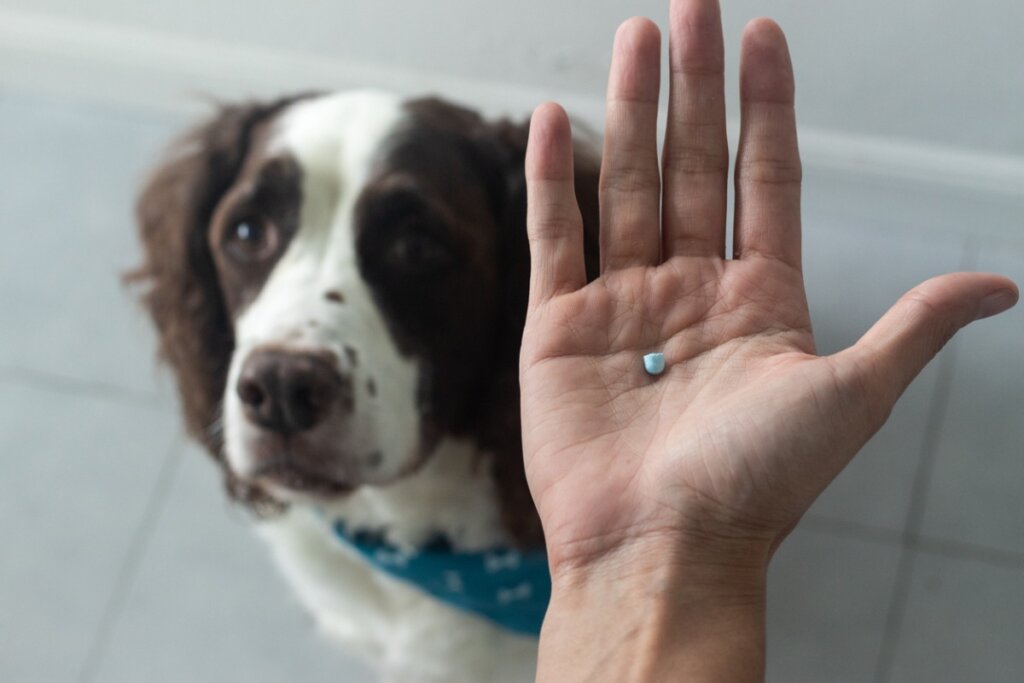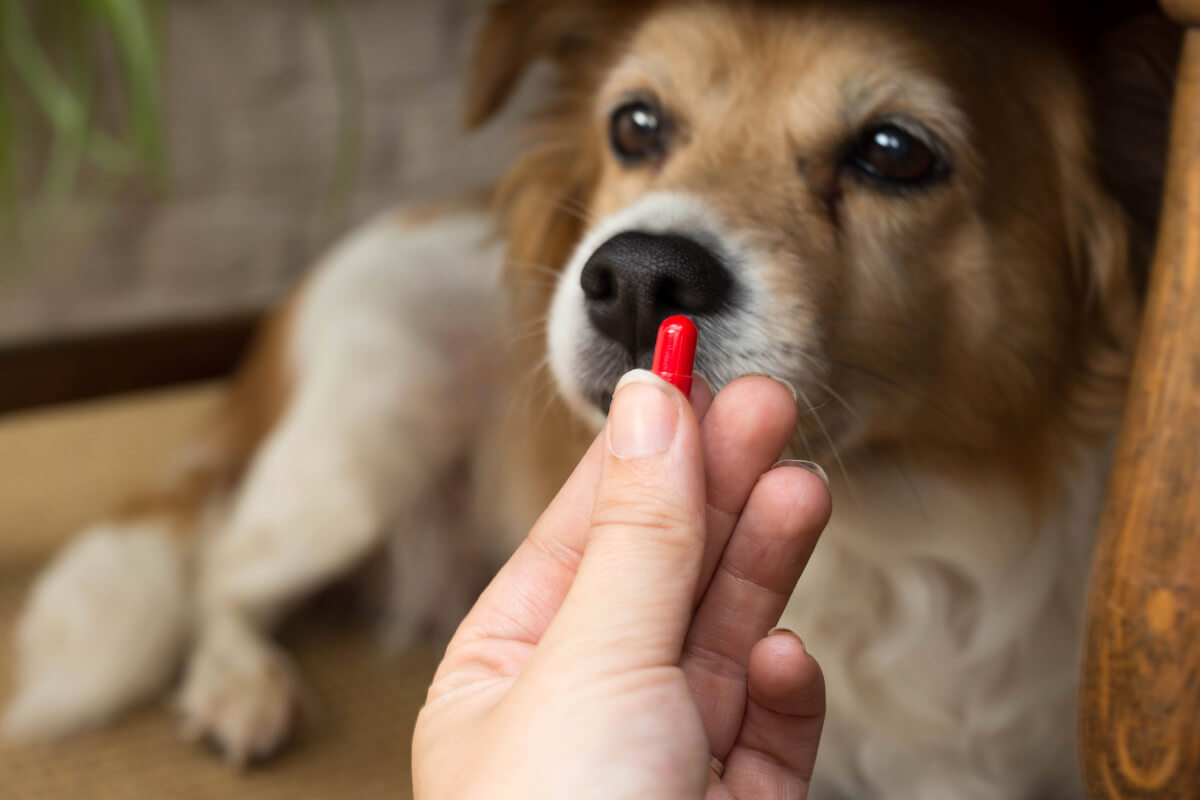Diclofenac for Dogs: Use and Dosage

It’s important to be clear which medicines can mitigate or relieve your dog’s discomfort of your and what’s the correct way to administer them. For this reason, this article will deal with diclofenac for dogs, a drug that’s used in different situations to combat your pet’s pain.
Here we’ll inform you about the use, limitations, dosages, and different presentations of diclofenac. We’ll also stress the importance of using it only under veterinary prescription and supervision. Keep in mind that your dog’s health is a very sensitive issue.
Is diclofenac toxic to dogs?
Diclofenac belongs to the NSAIDs, a non-steroidal anti-inflammatory antipyretic analgesic drug used to relieve pain. This drug is used to treat discomfort in dogs, especially in bone or joint complications.
Although it isn’t toxic to dogs, this medication should be used with caution and according to the instructions of a professional.

Uses of diclofenac in dogs
This product is often used to soothe pain, inflammation and even to treat fever in your canine friend. In addition, it’s sometimes used to treat ophthalmological problems such as canine uveitis. It can also be an option before or after eye surgery.
Some specialists prescribe diclofenac along with vitamin B complex. This is useful when they think your pet is lacking in nutrients or you’re trying to improve their overall health. B vitamins are important for the processing of proteins, the production of antibodies, and the maintenance of neurological function.
This drug can be used in infectious processes of the respiratory system and its anti-inflammatory effect contributes to the healing of musculoskeletal and gastrointestinal injuries. Likewise, it may help in conditions such as colic, toxemia, arthritis, trauma, and tendinitis.
Alternatives and limitations of the drug
However, this product isn’t the only anti-inflammatory option that veterinary medicine professionals consider. There are other alternatives that are effective against bone or joint pain in canines. For example, meloxicam or carprofen are useful and report fewer side effects.
It’s important to follow the directions on the use of diclofenac for dogs to the letter. It’s likely that this medication will affect your dog’s digestive system and cause vomiting, diarrhea or ulcers. Therefore, specialists usually prescribe it along with a stomach protector.
It should also be noted that diclofenac isn’t a good choice for dogs with liver or kidney problems. Anyway, only a professional in the field can assess whether this drug from the NSAID group will be beneficial to your dog good or not.
Diclofenac dosage for dogs
As mentioned above, only a veterinarian can determine the correct dose of diclofenac for your 4-legged friend, because this drug should be applied with responsibility and control. The dose will depend on the characteristics of the dog as well as the condition it’s suffering from.
Taking your dog to a professional as soon as you notice any type of health problem is fundamental, because they’ll know how to treat it. In general, the aim is to achieve maximum effect when administering the drug, but with the lowest possible dose of this product.
Giving your dog large amounts of diclofenac can have serious consequences. Lack of appetite, alterations in urine, extreme thirst, vomiting blood, and seizures are some of the side effects that could occur if you administer an excessive dose of this drug.
In the worst cases, this drug could even cause your pet’s death. Therefore, the importance of responsible use is highlighted. That is, you should only use this medication under prescription, and following all the instructions of a professional in the field.
Presentations of diclofenac for dogs
Moreover, it’s useful to know that this drug exists in different formats. One of them is diclofenac gel, which is effective, but impractical. It isn’t a comfortable or easy-to-use option, because the application of the product can become a problem due to the dog’s hair.
It’s also possible to find diclofenac drops, which are used for eye treatments and this also requires a specialist to monitor and provide recommendations. There’s also injectable diclofenac, which can cause a reaction in the specific area where it’s applied.

Remember that diclofenac, as with any medication, must be used with the approval and supervision of a veterinarian. Be sure to give your pet the correct dosage and for as long as his or her treatment requires. Don’t forget that health is the starting point for your dog to be healthy and happy.
All cited sources were thoroughly reviewed by our team to ensure their quality, reliability, currency, and validity. The bibliography of this article was considered reliable and of academic or scientific accuracy.
- ANALGÉSICOS ANTIPIRÉTICOS Y ANTIINFLAMATORIOS NO ESTEROIDES (AINEs). Facultad de Medicina de la Universidad Nacional del Nordeste. Recogido el 5 de octubre de 2021 de: https://med.unne.edu.ar/sitio/multimedia/imagenes/ckfinder/files/files/0000cap7_aines.pdf
- Meloxicam, un AINE con características especiales. Revista AVFT. Recogido el 5 de octubre de 2021 de: https://www.revistaavft.com/images/revistas/2019/avft_3_2019/5_meloxicam.pdf
- González-Corrales, D., Monge-Quirós, T., & Alfaro-Mora, R. (2021). Efectos adversos relacionados al uso de AINEs en el manejo de osteoartritis felina y canina. Revista Colombiana de Ciencia Animal-RECIA, 13(1), e781-e781.
